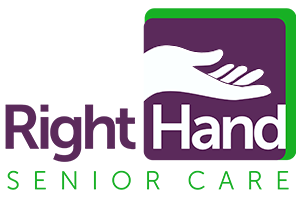The Impact of Social Media on Seniors: Pros and Cons
It feels like social media is everywhere nowadays — and everyone, young and old, is on it.
Social media lets us meet and connect with new people, keep up with friends and family, learn about things we’re interested in, discuss hobbies with like-minded people, and even shop for nearly anything we want or need.
For seniors, especially those with limited mobility, social media can provide a valuable window to the world outside and keep them connected to people. But it can also be overwhelming, confusing, and even dangerous. So it’s important to make sure your senior loved ones are using social media responsibly.
The benefits of social media for seniors
Social media offers undeniable advantages for seniors, helping them:
Stay connected
One of the most significant benefits of social media for seniors is the ability to maintain connections with family and friends, regardless of physical distance. Platforms like Facebook and Instagram allow seniors to regularly see photos, videos, and updates from loved ones, helping them feel included and less isolated.
Build communities
There are virtually unlimited numbers of groups, communities, and forums centered around nearly any interest, hobby, or experience you can think of. Seniors can join these communities, participate in discussions, and connect with people of all ages who share similar interests or face familiar challenges.
Social connections are essential for seniors’ physical and mental well-being, and participating in these communities can be incredibly fulfilling and mentally stimulating. Dedicated communities can also be helpful for seniors who are experiencing grief or loss or serious health issues.
Access information
The wealth of information available online can empower seniors to stay updated with news, medical advancements, personal interests, and more. Social media platforms can also be a great resource for educational content tailored to older audiences, such as tutorials, lectures, and workshops. And it’s never too late to learn something new — in fact, continuous learning is highly recommended.
Make a difference
Social media also offers a platform for seniors to advocate for issues they care about, participate in community decisions, and engage with local or global movements. This can provide a sense of purpose and agency that enriches their lives, and it allows them to make a real difference in their communities and beyond.
Cons of social media for seniors
While the benefits are clear, it’s important to recognize and manage the challenges that seniors may face when using social media.
Privacy and security concerns
One of the primary concerns when it comes to seniors and social media is the risk of privacy breaches and scams. According to FBI estimates, seniors collectively lose around $3 billion a year to financial scams.
So it’s essential to make sure your senior loved ones understand the importance of setting strong passwords and turning on stringent privacy settings. A password manager can be especially helpful here if they have trouble remembering or typing in long, complex passwords (and honestly, who doesn’t?).
However, one of the biggest factors in online safety is teaching seniors how to recognize suspicious messages. Modern scam artists use intense psychological tactics and advanced tools and methods to target victims, often befriending the individual first and gaining their trust before pivoting to the actual scam.
The best way to keep seniors safe from scams is to encourage them never to engage with someone they don’t know in real life or share any type of personal or sensitive information online.
Overwhelm and misinformation
There is an overwhelming amount of information floating around on social media — some of it true, some utterly false, and some lacking context. Seniors who are unused to the deluge of questionable information can easily assume that everything they read online is true, especially if they’re experiencing some cognitive decline. This can lead to feelings of paranoia, depression, anxiety, and other mental health conditions.
In addition, some seniors may find it challenging or frustrating to use social media due to limited technical skills. Low computer literacy can also make them more likely to fall for scams or accidentally share private information.
Fortunately, there are workshops and resources available to help seniors navigate the digital world safely and comfortably. AARP’s virtual workshop for social media and technology is a great option, and Cyber Seniors has some excellent resources as well.
Right Hand Care: Your partner in senior safety
Social media can be a fantastic way for seniors to stay connected, learn new things, and engage with supportive communities, but there are also some significant safety concerns to navigate. From scams to misinformation to technical literacy, it’s important to make sure your senior loved ones have the tools and knowledge they need to use social media safely.
And when it comes to ensuring seniors’ safety in real life, Right Hand Senior Care is here. We’re dedicated to helping every senior live a safe, comfortable, and fulfilling life. We can pair your loved one with a compassionate, highly trained in-home caregiver and work with you to develop a personalized care plan that meets your family’s needs.
For more information on our in-home care services or to set up a care plan, contact us today.

We are Superheroes in Comfortable Clothes™
We take care of our clients, their families, our staff, and our league of franchise owners.

